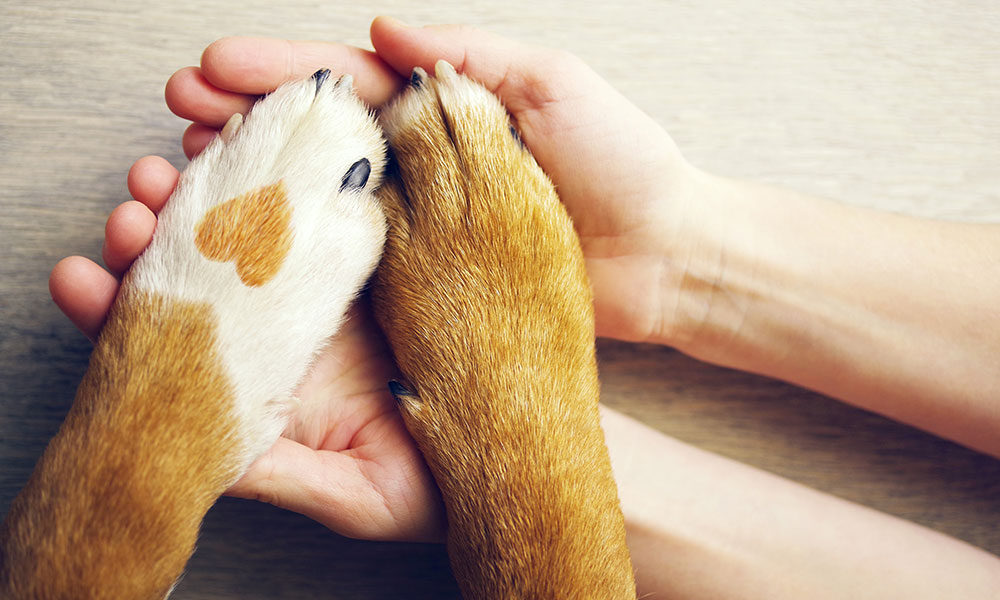The numbers that surround animal abuse in The United States are staggering. For the majority of us, the thought of striking or emotionally hurting our pets is as foreign of an idea as one can be. Unfortunately, it is still a serious issue that continues in the US and grows every year. According to the Humane Society of the United States, roughly 1-million animals are abused every year. 32% of those abuse cases come from an already abusive household. It’s a statistic no one likes to talk about, but it is useful information for anyone who has or is considering adopting a pet from a shelter. In fact, the majority of abused dogs that reside in shelters likely came from homes with less than loving owners. Adopting a pet that suffers from past trauma comes with difficulties that may be overwhelming for mistreated dogs. The question of whether or not a dog can remember those who have abused them can only be answered by exploring how the canine brain works, the types of abuse one may have suffered and if it’s possible to heal those injuries, physical or emotionally, to raise a happy and healthy pet.

Do Dogs Remember Abuse? The Science of Canine Memory

Like us, dogs have what is called long term and short term memory. While our short term memory can extend to hours or even days of recollection, the average dog’s short term memory will reset after roughly 70 seconds. If you have ever wondered why it seems like your dog is constantly begging for food or a dog treat, it is probably not due to greed but rather the fact that they forgot you gave them one. A common joke about dogs is that when their owner leaves, they fear you will never come back. This is simply because they don’t remember where or why you left. If you have owned a pooch for years, they remember you and your scent, but your act of taking out the trash or running to the store is too short of a time for their minds to rationalize your absence.
The question of the quality of a dog’s memory has been a topic of study for decades, even centuries. Dating back to Roman and Greek times. The story of Homer’s Odyssey touches on this theory. The story, dating back to the 8th century B.C., explores the story of Odysseus returning home after 10 years of fighting the Trojan wars. When he returns home, Odysseus disguises himself like a beggar to sneak back into his home to ambush unwanted guests that are trying to marry his wife. Even though he has been gone for a decade and is in a disguise, his dog (Argos) is the only one to recognize him. This story can be taken seriously or with a grain of salt. Considering that this tale dates back over 2000 years, it’s safe to say that information could have been fabricated or embellished upon. But the core principle is there, a dog remember their owner after years of absence.
We come across stories like this every day. News programs running a fluff piece about a soldier returning home and receiving an excited welcome from their dog. Dogs sleeping or crying next to their recently deceased owner’s grave after they have passed. Unfortunately, this is the extent of the research that has gone into the question of canine memory. Mainly for the fact that, while anecdotal, it gives us a clear answer that dogs seem to remember us after an extended period of absence. No further study has been done on the matter due to the fact that it is not feasible to separate an owner from their dog for a long enough period of time to conduct a proper study. So we must find our proof in real world experiences.
Signs That A Dog Has Been Abused

Abuse can come in many forms, but abused puppies leading to abused puppy syndrome, mistreated dogs and depressed or anxious animals can be identified by many signs that a dog has been abused. The main types of animal abuse can be separated into two categories: emotional and physical abuse. Both are serious and can show distinct signs that a dog has been abused. Physical abuse is self explanatory and often shows signs directly on a dog’s body. Scratches, scars, bruises, broken bones and more are clear signs that a dog has undergone or is undergoing abuse at the hands of someone. If you ever suspect that an animal may be being abused, call the proper authorities immediately.
Emotional abuse is the other form abuse can take in pets. While this type of abuse may not leave scars on the surface, that are easily identified, it can leave emotional scars that can last as long and be just as clear. Emotional abuse, like physical abuse, can last for years and drastically change the temperament of an abused dog. It can cause a dog to be timid, aggressive, withdrawn or depressed. Understanding these signs is a vital step in putting a stop to what is happening or managing to relay the discoveries to the proper channels and remove the animal from the abusive environment.
The signs of physically or emotionally mistreated dogs can include:
- Limping
- Fractures or Breaks
- Flinching
- Avoiding Eye Contact
- Aggressive Behavior
- Whimpering When You Approach
- Change in Coat Quality
- Hair Loss
- Urinating
- Avoiding Physical Contact
- Depression
- Separation Anxiety
- Fear of Strangers
These are just a few of the signs that a dog has been abused. Whether the dog abuse is physical or emotional, it is to be taken very seriously and you should report it to a humane society or local shelter as soon as possible. How long do dogs remember their abusers? How can you avoid ‘abused puppy syndrome’? Are abused dogs safe to bring into your home? Let’s talk about what you can do to help these poor mistreated dogs.
How To Help Abused Dogs, Abused Puppies & Mistreated Senior Dogs

It may sound like a cliche, but the best way to help mistreated dogs or abused puppies is to simply be there for them and love them. There is no reset button when it comes to the emotional scars that your dog, puppy or new pet may be showing. Healing those scars on an emotional level will take much longer than physical. Some of them may never heal. There are plenty of rescue dogs or puppies who have suffered abuse that never manage to move on past their trauma. They will grow and feel loved by their new, safe home, but tiny ticks or fears may follow them forever.
The best way to help a dog who has been previously abused is to be patient with every new endeavor you present to your pup. If you notice them doing something they shouldn’t, try to avoid shouting or using an aggressive tone. Speaking in a calming voice and remaining calm through body language will assure your dog that you are not a threat. If you are bringing your dog to a new park or introducing them to another dog or friend, do so slowly. Gradually introduce them to new surroundings or situations so that you do not run the risk of overwhelming them or frightening them more.
Also, most importantly, set up a “safe space” for your dog at home. If they have somewhere to go (under the bed, their own room) they will feel more safe and secure than always feeling like a prisoner in your home or having no space that is truly theirs. Some dogs do remember abuse due to associating surroundings, smells or behaviors with their troubled past. So, look for signs that a dog has been abused and be very cognizant of how your canine responds to certain surroundings or stimuli.
Be There For Your Pets

It’s clear that the answer to the question of “how long do dogs remember their abusers” can mean a lot of walks, talks, attention, love and care. Dogs don’t tend to remember like we humans do. While we can see a face or hear a name and use our memory recall to decipher where we met that person or heard that quote, a dog’s brain works entirely differently. In fact, it might not even be long term or short term memory that is the factor behind whether or not they can remember an abuser or even a non-abuser. It could all come down to scent recollection. Ever wonder why the best way to introduce yourself to a dog is by allowing them to smell you? They attribute a scent to the individual. Scent plays a big part in a dog’s ability to identify a person and might actually be the way, if any, that a dog could remember those who have abused them in the past. Unfortunately, lots of research still needs to be done on this issue and many researchers are working to find ways to answer that question.
If you liked this article and are curious about how CBD can help your pet, view our full line of CBD dog treats for hips & joints, pet cbd oil and full line of cbd oil for cats!
Frequently Asked Questions (FAQ)
Will a dog remember if you hit them?
In a sense, yes. If a dog has a past of trauma or physical abuse, they may flinch or cower when you raise your hand to pet them, thinking that it may be an incoming swat. While their lack of short term memory may lead to them forgetting it a few times, ongoing physical abuse will be registered into their long term memory and lead to aggression or anxiety issues down the road.
How do you tell if a dog has been beaten?
The most clear signs that a dog has been beaten are the signs of physical abuse. Matted or missing fur, broken bones, bruises, cuts and more are signs that a dog has been abused in some manner. If you notice markings on a dog and fear they are being abused, contact a local SPCA or Humane Society immediately.
How long does a dog remember what he did wrong?
Dogs don’t remember like you or I. They don’t connect their actions to consequence. Striking a dog for getting into the garbage doesn’t let them know that eating garbage is bad, it just runs the possibility of future issues down the road.
Will my dog remember me after 6 months?
While all evidence of a dog’s memory of their owners is purely anecdotal, dogs have been shown to remember their owners after months and even years of their absence. Stories on dogs remember their owners date back to the fall of Troy and present themselves in modern day with soldier returning home after years away in the military.







